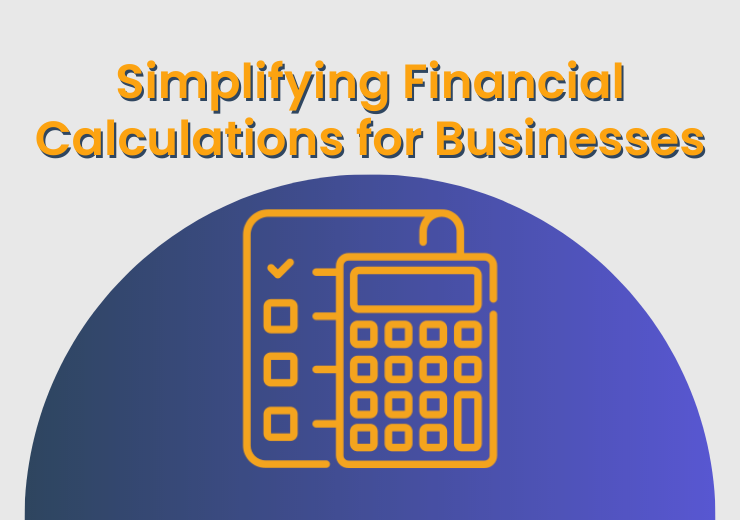Introduction
In the world of finance and business, accurate and efficient calculations are vital for success. From small startups to multinational corporations, every business relies on sound accounting practices to manage its finances effectively. One tool that has revolutionized financial calculations and simplified the lives of accountants and business owners alike is the accounting calculator. In this article, we will explore what an accounting calculator is, how it works, and the benefits it offers to businesses of all sizes.
What is an Accounting Calculator?
An accounting calculator is a specialized electronic device or software application designed to perform various financial calculations quickly and accurately. Unlike a regular calculator, an accounting calculator comes equipped with specific functions and features tailored to the needs of financial professionals. It can handle complex mathematical operations, including addition, subtraction, multiplication, and division, along with more advanced functions like compound interest, depreciation, and tax calculations.
The Functionality of Accounting Calculators
1. Basic Arithmetic Operations
Accounting calculators allow users to perform basic arithmetic operations effortlessly. Addition and subtraction functions come in handy for managing daily transactions and keeping track of financial inflows and outflows. These calculators also help in calculating percentages, which is essential for determining taxes and discounts.
2. Financial Formulas and Equations
One of the standout features of an accounting calculator is its ability to handle various financial formulas and equations. From calculating present and future values to assessing loan payments, these calculators simplify complex financial tasks that would otherwise require extensive manual work.
3. Time Value of Money (TVM) Calculations
TVM calculations are a critical aspect of finance, and accounting calculators excel in this area. They can handle time-sensitive financial calculations, such as annuities, perpetuities, and net present value (NPV), enabling businesses to make informed investment and borrowing decisions.
4. Depreciation and Amortization
Managing assets and their depreciation is a vital part of accounting. Accounting calculators aid in calculating depreciation and amortization expenses over time, helping businesses determine the value of their assets accurately.
Benefits of Using an Accounting Calculator
1. Time-Saving
Accounting calculators significantly reduce the time spent on complex financial calculations. Tasks that could take hours to complete manually can be done in a matter of minutes, allowing accountants to focus on more strategic aspects of financial management.
2. Accuracy and Reliability
Human errors in financial calculations can have serious consequences. Accounting calculators eliminate such risks by providing accurate results every time, ensuring that businesses make sound financial decisions.
3. Increased Productivity
With the efficiency gained through accounting calculators, financial professionals can handle more tasks in less time, boosting overall productivity within the organization.
4. Easy Financial Analysis
Accounting calculators enable quick financial analysis, allowing businesses to assess their financial health, identify trends, and make data-driven decisions.
Conclusion
In conclusion, accounting calculators have become indispensable tools for businesses looking to streamline their financial calculations. With their specialized functions and user-friendly interfaces, these calculators simplify complex accounting tasks, save time, and improve accuracy. From small businesses to large corporations, the benefits of using accounting calculators are evident. Embracing this technology can lead to better financial management, improved decision-making, and increased overall efficiency.
FAQs
Absolutely! Accounting calculators are beneficial for businesses of all sizes, including small enterprises. They help manage finances effectively without the need for extensive manual calculations.
- Can accounting calculators handle tax calculations?
Yes, accounting calculators are equipped to handle various tax calculations, such as income tax, sales tax, and value-added tax (VAT).
- Are accounting calculators user-friendly?
Yes, most accounting calculators come with intuitive interfaces that make them easy to use, even for individuals without extensive financial backgrounds.
- Can accounting calculators be used for personal financial planning?
Certainly! Accounting calculators can be utilized for personal financial planning, including budgeting, savings calculations, and investment assessments.
- Do accounting calculators require internet connectivity?
No, most accounting calculators operate independently without the need for internet connectivity, ensuring data privacy and availability at all times.

